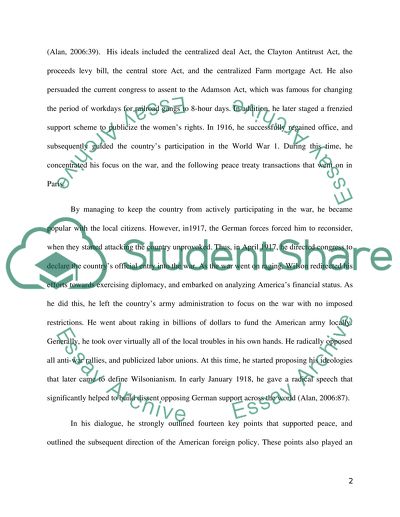Cite this document
(“What is wilsonianism and to what extent did it feature and influence Essay”, n.d.)
What is wilsonianism and to what extent did it feature and influence Essay. Retrieved from https://studentshare.org/history/1594007-what-is-wilsonianism-and-to-what-extent-did-it-feature-and-influence-in-us-foreign-policy-throughout-history-as-well-as-in-the-present-time
What is wilsonianism and to what extent did it feature and influence Essay. Retrieved from https://studentshare.org/history/1594007-what-is-wilsonianism-and-to-what-extent-did-it-feature-and-influence-in-us-foreign-policy-throughout-history-as-well-as-in-the-present-time
(What Is Wilsonianism and to What Extent Did It Feature and Influence Essay)
What Is Wilsonianism and to What Extent Did It Feature and Influence Essay. https://studentshare.org/history/1594007-what-is-wilsonianism-and-to-what-extent-did-it-feature-and-influence-in-us-foreign-policy-throughout-history-as-well-as-in-the-present-time.
What Is Wilsonianism and to What Extent Did It Feature and Influence Essay. https://studentshare.org/history/1594007-what-is-wilsonianism-and-to-what-extent-did-it-feature-and-influence-in-us-foreign-policy-throughout-history-as-well-as-in-the-present-time.
“What Is Wilsonianism and to What Extent Did It Feature and Influence Essay”, n.d. https://studentshare.org/history/1594007-what-is-wilsonianism-and-to-what-extent-did-it-feature-and-influence-in-us-foreign-policy-throughout-history-as-well-as-in-the-present-time.


